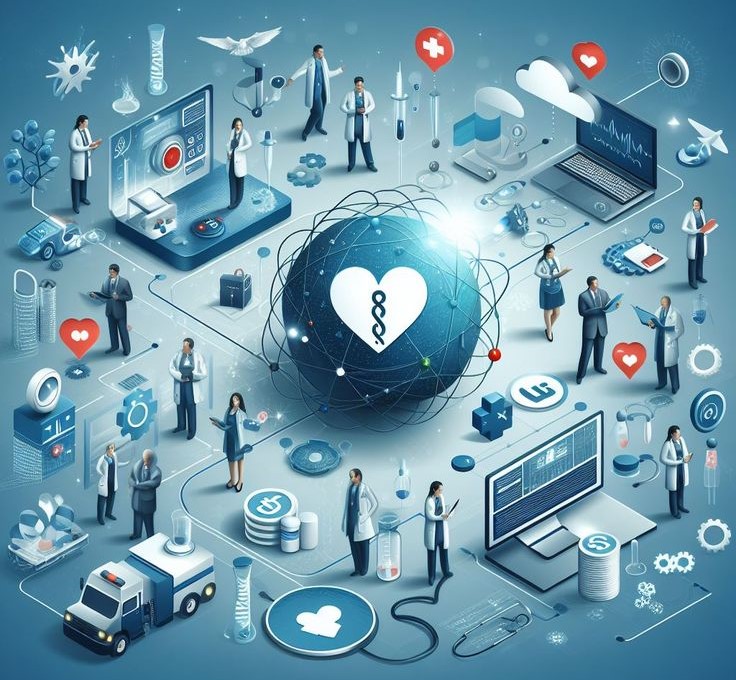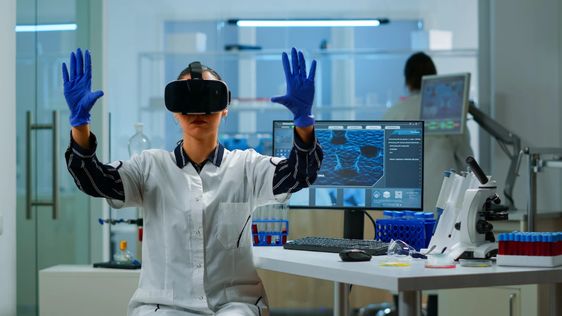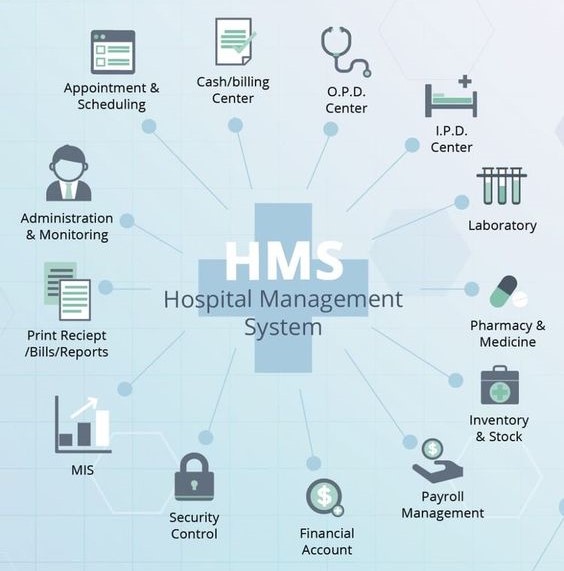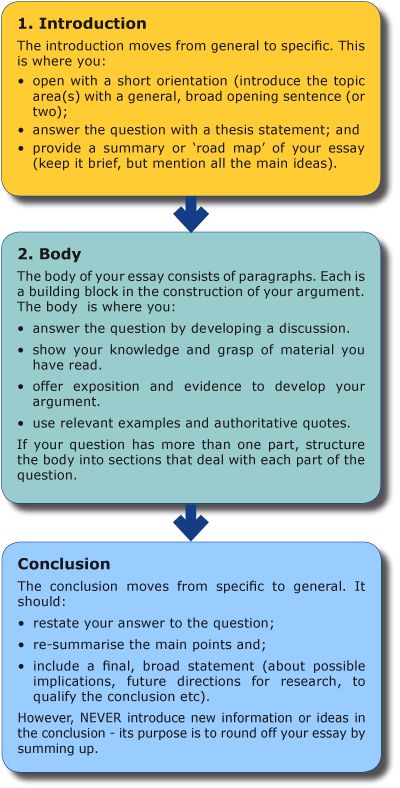
Table of Contents
The landscape of healthcare is undergoing a dramatic transformation, driven by the relentless march of technological innovation. From the way we diagnose diseases to the manner in which we administer treatments, technology in healthcare has become an indispensable force, revolutionizing the patient experience and empowering medical professionals with unprecedented capabilities.
This essay delves into ten pivotal topics showcasing the profound impact of technology in healthcare, exploring its multifaceted applications and potential for shaping the future of wellness. It also offers definitive strategies for writing compelling essays about technology in healthcare.
The Best Topics for Technology in Healthcare
1. Artificial Intelligence (AI) and Machine Learning (ML) in Diagnosis and Treatment
AI and ML are emerging as powerful tools in healthcare, particularly in diagnosis and treatment planning. By analyzing massive datasets, these technologies can identify patterns and anomalies that human eyes might miss, enabling early detection of diseases and personalized treatment plans. AI-powered imaging systems can assist radiologists in interpreting scans, while ML algorithms can predict patient outcomes and optimize drug therapies. The potential of AI and ML in diagnosis and treatment is vast, promising a future where diseases are identified sooner and patients receive more tailored care.

2. Telemedicine and Remote Patient Monitoring
Technology in healthcare has democratized access to medical services with the rise of telemedicine. Virtual consultations allow patients to connect with healthcare providers remotely, breaking down geographical barriers and offering greater convenience. Remote patient monitoring devices, such as wearables and smart home sensors, continuously collect vital signs, medication adherence data, and other health indicators. This information enables proactive care, early intervention, and improved patient outcomes. Telemedicine and remote patient monitoring are transforming healthcare by making it more accessible, affordable, and effective.
3. Robotics and Automation in Surgery:
Robotic surgery is revolutionizing minimally invasive procedures, offering numerous advantages over traditional techniques. Robotic systems provide surgeons with enhanced precision, dexterity, and visualization capabilities, allowing for smaller incisions, reduced blood loss, and faster recovery times. Automation in surgery also extends beyond robotic systems, encompassing tasks like medication dispensing, tissue sampling, and sterilization, freeing up human resources for more complex aspects of care. That makes it a great topic idea for a compelling essay about technology in healthcare.
4. Big Data Analytics for Personalized Medicine:
The exponential growth of healthcare data provides a wealth of insights for personalized medicine. By analyzing patient data, including genetic information, medical history, and lifestyle factors, healthcare professionals can identify individual risk factors, predict disease progression, and tailor treatment plans to specific needs. Big data analytics allows for a more holistic understanding of each patient, leading to more effective and personalized interventions.
5. Virtual Reality (VR) and Augmented Reality (AR) in Training and Therapy:
VR and AR technologies are making their way into healthcare, offering innovative solutions for training and therapy. VR simulations provide immersive and realistic environments for medical professionals to practice surgical procedures or learn about complex medical conditions. AR overlays digital information onto real-world environments, enhancing surgical accuracy and guiding medical professionals through complex tasks. In therapy, VR and AR are used for pain management, mental health interventions, and rehabilitation.

6. Blockchain and Cybersecurity in Healthcare:
Blockchain technology, known for its security and transparency, holds significant potential for healthcare. It can be used to secure electronic health records, streamline medical billing, and facilitate secure data exchange between different healthcare providers. Cybersecurity is paramount in the digital age, ensuring the protection of sensitive patient data from unauthorized access and cyberattacks. Blockchain and cybersecurity are essential components of building a secure and trustworthy healthcare ecosystem.
7. 3D Printing and Bioprinting in Healthcare:
3D printing is transforming healthcare by allowing for the creation of customized medical devices, prosthetics, and implants tailored to individual needs. Bioprinting, a more advanced form of 3D printing, involves using living cells to create functional tissues and organs. This groundbreaking technology holds immense potential for regenerative medicine, organ transplantation, and drug development.
8. Genomics and Personalized Medicine:
The advancements in genomics have revolutionized our understanding of human biology and the development of personalized medicine. By analyzing an individual’s genetic makeup, healthcare professionals can identify genetic predispositions to certain diseases, predict drug responses, and tailor treatments to specific genetic profiles. This personalized approach offers the potential for more effective disease prevention and treatment.
9. Wearable Technology and Health Monitoring:
Wearable devices, such as smartwatches and fitness trackers, are becoming increasingly popular for health monitoring. These devices continuously collect data on heart rate, sleep patterns, activity levels, and other vital signs. This information can empower individuals to take control of their health and make informed decisions about lifestyle choices. Wearable technology is also used for early detection of health problems and remote patient monitoring. These can create impactful topics for an essay about technology in healthcare.
10. The Future of Technology in Healthcare:
The future of technology in healthcare is brimming with exciting possibilities. The convergence of different technologies, such as AI, robotics, and genomics, is creating new opportunities for healthcare innovation. We can expect further advancements in disease diagnosis, treatment, and prevention, leading to improved patient outcomes and a more proactive approach to healthcare.

Mistakes to Avoid When Choosing a Topic About Technology in Healthcare
Choosing a topic for an essay, a research paper or dissertation about technology in healthcare can be exciting. However, it is crucial to avoid common pitfalls to ensure your topic is insightful and engaging. Here are some of the common mistakes that you should avoid when crafting a paper about technology in healthcare.
1. Being too broad or vague:
- Example: “The future of technology in healthcare.”
- Problem: This is too vast and lacks specific focus.
- Solution: Narrow down your topic, e.g., “The impact of AI on diagnosing cardiovascular disease.”
2. Picking a topic that’s overly technical:
- Example: “The role of deep learning algorithms in medical imaging analysis.”
- Problem: This might be inaccessible to a general audience without a technical background.
- Solution: Focus on the practical implications and impact rather than the technical details, e.g., “How AI is revolutionizing breast cancer detection.”
3. Focusing solely on futuristic technologies:
- Example: “The potential of nanobots in delivering targeted drug therapies.”
- Problem: While exciting, discussing hypothetical technologies might not be as relevant to the current state of healthcare.
- Solution: Balance futuristic concepts with real-world applications currently being used, e.g., “The role of AI-powered chatbots in mental health support.”
4. Neglecting the ethical considerations:
- Example: “The benefits of using AI to predict patient outcomes.”
- Problem: Focusing solely on benefits ignores potential ethical concerns, such as data privacy and bias in algorithms.
- Solution: Address both the benefits and challenges, e.g., “AI in healthcare: Balancing benefits and ethical considerations in predicting patient outcomes.”
5. Ignoring the patient perspective:
- Example: “The use of robotics in orthopedic surgeries.”
- Problem: This focuses on the technology itself, neglecting the impact on the patient experience.
- Solution: Consider the patient’s perspective, e.g., “The impact of robotic surgery on patient recovery and satisfaction.”
6. Selecting a topic already extensively covered:
- Example: “The role of telehealth in remote areas.”
- Problem: This topic has been widely discussed, offering little new insight.
- Solution: Look for niche areas or emerging trends, e.g., “The use of telehealth in managing chronic pain in rural communities.”
7. Failing to conduct adequate research:
- Example: Choosing a topic without understanding the latest research and developments.
- Problem: Your discussion may be inaccurate or uninformed.
- Solution: Research thoroughly before settling on your topic, consult credible sources, and stay updated on recent advancements.
8. Choosing a topic too narrow or specific:
- Example: “The impact of a specific type of AI algorithm on a single medical condition.”
- Problem: This might be too specific to spark broader interest or generate valuable insights.
- Solution: Find a balance between specificity and broader relevance, e.g., “The use of AI in personalized cancer treatment.”
9. Not considering your audience:
- Example: Using technical jargon when presenting to a general audience.
- Problem: Your audience may not understand the complex terminology.
- Solution: Tailor your language and examples to your audience’s level of understanding.
10. Ignoring the social and economic implications:
- Example: “The benefits of using VR in medical training.”
- Problem: This ignores the potential impact on healthcare costs, workforce, and accessibility.
- Solution: Address the broader societal and economic implications of the technology, e.g., “The impact of VR technology on medical education and its implications for healthcare costs.”
Carefully considering these mistakes and selecting a relevant, well-researched, and engaging topic will enable you to contribute to a meaningful discussion about the transformative role of technology in healthcare.
Strategies for Nursing Essay Writing
Writing a compelling nursing essay can be challenging, but with the right strategies, you can stand out from the crowd. Here’s a guide to help you craft a winning essay:
1. Understand the Prompt:
- Read carefully: Analyze the prompt, identifying keywords and the specific requirements. What are they looking for?
- Identify the desired tone: Is it formal, personal, analytical, or reflective?
- Brainstorm ideas: Write down everything that comes to mind related to the prompt.
- Refine your focus: Choose the most compelling and relevant ideas, focusing on a specific theme.
2. Show, Don’t Tell:
- Use vivid language: Instead of simply stating facts, paint a picture with your words. Use sensory details and metaphors.
- Relate experiences: Share personal anecdotes that illustrate your understanding of the prompt and your values.
- Show your passion: Let your enthusiasm for nursing shine through in your writing.
- Use examples: Illustrate your points with concrete examples from your experiences or observations.
3. Structure for Success:

- Strong introduction: Capture the reader’s attention with a compelling hook, introduce your topic, and state your thesis statement.
- Logical progression: Organize your essay into clear paragraphs, each with a distinct focus and supporting evidence.
- Transitions: Use connecting words and phrases to ensure smooth flow between paragraphs and ideas.
- Concise body paragraphs: Each paragraph should address a specific point supporting your thesis, with evidence and explanations.
- Powerful conclusion: Reiterate your main points, summarize your argument, and leave a lasting impression.
4. Reflect on Your Journey:
- Reflect on your motivations: Why did you choose nursing? What experiences sparked your interest?
- Highlight your skills and qualities: Identify your strengths and how they relate to the nursing profession.
- Show your commitment to lifelong learning: Demonstrate your dedication to continuous professional development.
5. Polish Your Essay:
- Proofread carefully: Eliminate grammatical errors, typos, and awkward phrasing.
- Seek feedback: Ask a trusted friend, mentor, or writing tutor for constructive criticism.
- Rewrite and revise: Don’t be afraid to rework your essay multiple times until you are satisfied with the final product.
Remember:
- Be authentic: Let your genuine voice and personality shine through.
- Write about your passion: Show your enthusiasm for nursing and your dedication to helping others.
- Focus on your strengths: Emphasize your unique qualities and experiences that make you a strong candidate.
Technology in healthcare is playing a pivotal role in shaping the future of wellness. From AI-powered diagnosis to remote patient monitoring, robotic surgery to personalized medicine, these innovations are transforming how we approach healthcare, improving patient care, and enhancing the overall well-being of individuals. As technology continues to evolve, we can expect even more groundbreaking advancements that will further revolutionize the healthcare landscape, ushering in a new era of health and longevity.
The Best Nursing Essay Help on Technology in Healthcare
Choosing an engaging topic and crafting a stellar essay about technology in healthcare can be challenging even to the best students. However, you can easily avoid the stress when you hire professional essay help from PhD Nurse Writer. We offer customized assignment help, with a guarantee of original and compelling essays to elevate your academic performance.





